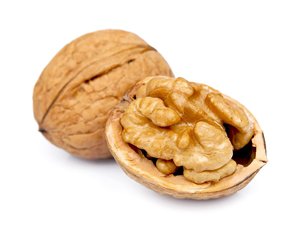Does your diet during pregnancy impact your child’s food allergies?
As you know, all of the nutrients that you take in during pregnancy are passed on to your unborn child
. The same is true when you’re breastfeeding. Therefore, it seems pretty plausible that what you eat could affect your baby – in more ways than one. But is there a link between pregnancy diet and baby food allergies? For example, if you expose your baby to certain common allergens when he or she is in the womb, will your child be less likely to be allergic to those foods? Recent research suggests this is possible.
Allergies on the rise
Overall, about 1 in 13 kids have a food allergy, and about 40 percent of them have experienced a severe or life-threatening reaction because of it. Peanut or tree nut allergy cases, in particular, are on the rise: From 1997 to 2010, the number of kids with peanut or tree nut allergies tripled. Tree nuts include walnuts, almonds, pistachios, cashews, pecans, hazelnuts, macadamias and Brazil nuts.
Peanuts and tree nuts during pregnancy
From 2000 until 2008, the American Academy of Pediatrics recommended that pregnant women should avoid eating peanuts and tree nuts during pregnancy or nursing (even if they weren’t allergic to them themselves). They also said new moms should avoid exposing infants to the allergens and avoid feeding peanuts and tree nuts to children younger than 3. However, it rescinded those recommendations in 2008, telling mothers there was no need to avoid the nuts.
Those who eat nuts less likely to have kids with allergies
A recent study published in the journal JAMA Pediatrics found that moms who ate peanuts and tree nuts were less likely to show a link between their pregnancy diet and baby food allergies. Researchers at Harvard Medical School collected data on more than 8,200 children of mothers who took part in the Nurses’ Health Study II. The women reported what they ate before, during and after their pregnancies.
Of the group, about 300 of the children had food allergies, and 140 of those were allergic to peanuts and tree nuts.
After examining the data, the researchers noticed that mothers who ate the most peanuts or tree nuts – at least five times a week – had the lowest risk of their children developing a nut allergy. Kids whose mothers were allergic to peanuts or tree nuts didn’t have a significantly lower risk.
The results aren’t telling enough to create dietary guidelines for pregnant women. However, they do show that pregnant women don’t need to concern themselves with avoiding nuts.
